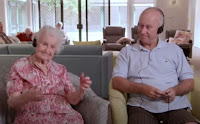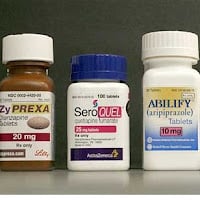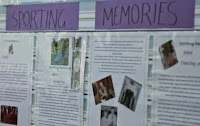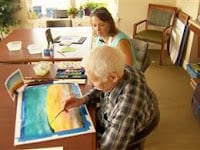
Remember Love (A Song About Alzheimer’s & Living in the Moment)
This exceptional song, “Remember Love”, captures those moments that connect us to our loved ones struggling with loss of memory, and living in that moment.

This exceptional song, “Remember Love”, captures those moments that connect us to our loved ones struggling with loss of memory, and living in that moment.

Harvard’s Dr. Rudolph Tanzi is edging Alzheimer’s research forward with a string of breakthroughs. He’s one of today’s most talked-about Alzheimer’s researchers. Watch Rudy Tanzi talk about the inspiration for his life’s work.

If toward the end of your life your mind was fading away, would your favorite songs help bring your memories back?

An Alzheimer’s blood test that works before symptoms appear can clear up doubts about memory problems. It can tell the difference between subjective memory problems, such as normal side-effects of aging, versus warning signs of Alzheimer’s.

Researchers found in a German study the Mediterranean diet — one rich in fish, vegetables and olive oil — can protect the brain from the development of protein deposits and loss of brain matter.

Top expert TEEPA SNOW presents what people with dementia hear when you talk and how they process your verbal cues.

Dementia symptoms such as agitation, psychosis, anxiety, insomnia & depression are often treated with antipsychotic medication. Learn why these medications increase the risk of stroke.

Banks can be intimidating in a world with Alzheimer’s. Pin numbers and fraud protection, long lines and lots of numbers, may call for special attention. That’s why Lloyds Banking Group and The Alzheimer’s Society offer this landmark “Dementia-Friendly Financial Services” guide for banks and insurers. Download the guide and improve the everyday lives of people affected by dementia.

2 studies connect Alzheimer’s to concussions, and lighter blows to the head to memory loss. How careful can we be? Just how much does it matter?

See how Sporting Memories Network promotes the well-being of people living with dementia with projects that tap into their prior passion for sports.

Here’s a good activity caregivers can use easily, contributed by one of our readers. It’s a simple game, great in mid-stage Alzheimer’s.

Ah, how good it feels. . . The hand of an old friend. (See pillows, posters, cards, etc.) 101003 (560×373)

Meet Marley, a THERAPAWS therapy dog, helping the elderly that suffer from dementia. See pet therapy at work.

Swiss researchers find that people with certain personality traits are protected against Alzheimer’s disease, including those who are less agreeable, had natural curiosity, and were nonconformists. Find out why.

Learn about ‘personalized music for dementia’ and its powerful effect on Alzheimer’s. See the Director of the hit film, ‘Alive Inside’, on the dementia-impact of music.

The brush strokes are precise, the colors vibrant. See a Colorado art program help patients rise above dementia, while the paintings raise money for The Alzheimer’s Association.

The protein BDNF builds synapses in the human brain, nurturing brain cells and fighting off dementia. While there is no artificial way of boosting it, social and cognitive activity can.
No spam, only news and updates.


